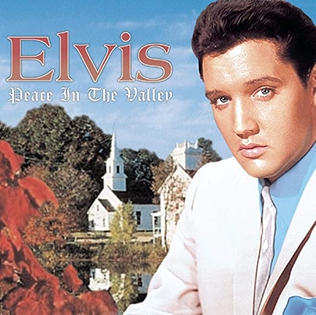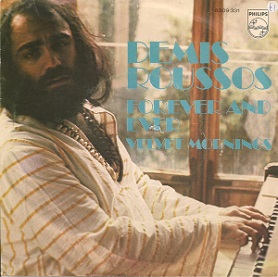Related Research Articles

"The Twelfth of Never" is a popular song written in 1956 and first recorded by Johnny Mathis the following year. The title is a popular expression, which is used as the date of a future occurrence that will never come to pass. In the case of the song, "the 12th of Never" is given as the date on which the singer will stop loving his beloved, thus indicating that he will always love her.

"The Young Ones" is a single by Cliff Richard and the Shadows. The song, written by Sid Tepper and Roy C. Bennett, is the title song to the 1961 film The Young Ones and its soundtrack album.

"Summer Holiday" is a song recorded by Cliff Richard and the Shadows, written by rhythm guitarist Bruce Welch and drummer Brian Bennett. It is taken from the film of the same name, and was released as the second single from the film in February 1963. It went to number one in the UK Singles Chart for a total of two weeks. After that, the Shadows' instrumental "Foot Tapper"—also from the same film—took over the top spot for one week, before "Summer Holiday" returned to the top spot for one further week. The track is one of Richard's best known titles and it remains a staple of his live shows. It was one of six hits Richard performed at his spontaneous gig at the 1996 Wimbledon Championships when rain stopped the tennis.

"Power to All Our Friends" is a song by Cliff Richard which was chosen as the British entry to the Eurovision Song Contest 1973, by a postal vote which was decided by BBC viewers after Richard performed six contending songs on A Song For Europe, featured on Cilla Black's BBC1 Saturday evening show Cilla. The runner-up song was "Come Back Billie Jo", written by Mitch Murray and Tony Macaulay, which was included as the B-side on the single. "Power to All Our Friends" came third in the Eurovision Song Contest.
"L'Edera" is an Italian language song, written by Saverio Seracini and Vincenzo D'Acquisto. The song premiered at the 8th Sanremo Music Festival in January 1958, being performed first by Nilla Pizzi and then Tonina Torrielli, with separate performances, and placing second in the competition, behind "Nel blu dipinto di blu" by Domenico Modugno and Johnny Dorelli. "L'Edera" was later recorded by several Italian artists, including Claudio Villa.
"L'Été indien" is a 1975 single by American/French singer named Joe Dassin. ISWC T-901.718.586-3. In the song he reflects with fond memories of his lover, who he met during an indian summer, but with whom he has now lost contact.
"La complainte de l'heure de pointe " is a song by Joe Dassin from his 1972 album Joe.
"Les Dalton" is a 1967 song by Joe Dassin. It was originally released as the first track of a 4-title EP on CBS.

Peace in The Valley: The Complete Gospel Recordings is a triple-CD compilation album by Elvis Presley, released in 2000.

"Velvet Mornings" is a song by Greek singer Demis Roussos. It was released as a single in 1973.
Le Jardin du Luxembourg is the 10th studio album by French singer Joe Dassin. It came out in 1976 on CBS Disques.
Joe Dassin is the fifth French studio album by Joe Dassin. It came out in 1971 on CBS Disques.
Joe Dassin is the fourth French studio album by Joe Dassin. It came out in 1970 on CBS Disques.
Joe Dassin is the ninth French studio album by Joe Dassin. It came out in 1975 on CBS Disques.
Joe Dassin is the third studio album by French musician Joe Dassin. It was originally released in 1969 on the CBS Disques label.

13 chansons nouvelles is the seventh French studio album by Joe Dassin. It came out in 1973 on CBS Disques.
"Marie" is a song, originally recorded by Cat Mother and the All Night Newsboys on their 1969 album The Street Giveth... And The Street Taketh Away. In the same year it was released on the B-side of the single "Can You Dance to It?".
"The Mosquito" is a song by American rock band the Doors from their 1972 album Full Circle. In the same year it was released as a single. Billboard called it an "unusual off beat disc" with a "clever Latin beat". Record World called it an "infectious ditty with calypso feel." The vocal is by Robby Krieger.
"Taka takata" is a song originally recorded by Paco Paco, a Spanish singer living in Málaga - Spain. The song was released as a single in 1972 and was a hit in Europe.
Les Deux Mondes de Joe Dassin is the second French studio album by Joe Dassin. It came out in 1967 or early 1968 on CBS.
References
- ↑ Nielsen Business Media, Inc. (24 February 1973). Billboard. Nielsen Business Media, Inc. pp. 45–. ISSN 0006-2510.
JOE Joe Dassin.
{{cite book}}:|author=has generic name (help) - ↑ Nielsen Business Media, Inc. (30 June 1973). Billboard. Nielsen Business Media, Inc. pp. 57–. ISSN 0006-2510.
Joe Joe Dassin.
{{cite book}}:|author=has generic name (help) - ↑ Original by The Doors from their 1972 album Full Circle . French adaptation by Richelle Dassin and Claude Lemesle.
- ↑ Original by Steve Goodman from his 1971 album Steve Goodman. French adaptation by Richelle Dassin and Claude Lemesle.
- ↑ French adaptation by Richelle Dassin and Claude Lemesle.
- ↑ Original by Jeremias from 1972. French adaptation by Richelle Dassin and Claude Lemesle.
- ↑ French adaptation by Pierre Delanoë.
- ↑ Original by Paco Paco from 1972. French adaptation by Richelle Dassin and Claude Lemesle.